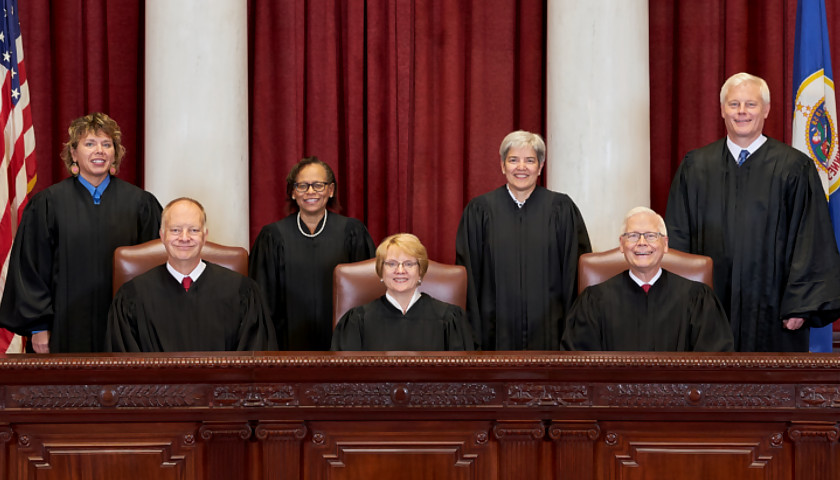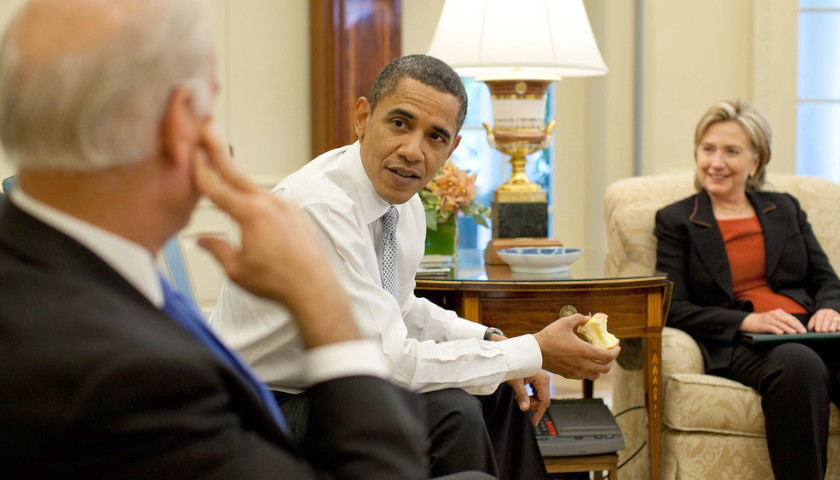by Scott McClallen
The Minnesota Supreme Court plans to hear oral arguments Jan. 9 in a lawsuit challenging as unconstitutional state ballot laws that plaintiffs say shut out Republican candidates from the March 3, 2020, presidential primary.
Roque “Rocky” De La Fuente, a 2020 Republican presidential candidate and the petitioner, James Bernard Martin, Jr., filed a lawsuit on Dec. 13 against Minnesota Secretary of State (SOS) Steve Simon. The men claim the 2016 law excluded De La Fuente from the November 2020 ballot, despite him meeting all requirements to run for president.
Minnesota law states that each party chair must determine candidates nominated for president and submit them to the Secretary of State at least 63 days before the presidential primary, which can’t be changed after submission.
Jennifer Carnahan, the chair of the Minnesota Republican Party, on Oct. 24 picked President Donald Trump as the only candidate on the March 3, 2020, presidential primary election ballot.
Erick Kaardal, Martin’s lawyer, told The Center Square his lawsuit argues the SOS erred by allowing the $11.9 million taxpayer-funded presidential primary to proceed with one candidate on the GOP ballot while excluding other candidates such De La Fuente, Joe Walsh and Bill Weld.
Kaardal said De La Fuente had a right under the Minnesota and U.S. constitutions to be on the ballot and the state statute violates Minnesota Constitution Article XII, section 1 that bans the state legislature “from granting any special or exclusive privilege to private corporations, associations or individuals.”
“What we’re trying to do is establish that in a taxpayer-funded primary, candidates need to have access to the ballot, because the Constitution requires if there’s a primary where the government is ensuring that there is a fair inter-party competition, then the primary ballot has to reflect the competition,” Kaardal said. “It can’t just be one candidate.”
Simon filed a brief last week backing Minnesota’s current statutes and encouraging the court to deny the petition because the plaintiffs filed the lawsuit 43 days after candidate nominations, which constitutes an “unreasonable delay.”
The brief said relief requested “would prejudice election officials, other candidates, and the Minnesota electorate in general” and asserts the “state has a legitimate interest in avoiding a ‘laundry list’ ballot that contains the name of every would-be candidate, no matter how frivolous her candidacy.”
Simon’s brief said that major parties have constitutional freedom of association that includes limiting membership.
“A political party is a private association that holds a First Amendment right to identify the people who constitute the association and to limit its membership to those people alone,” the brief states. “As such, parties have the right to choose their party leaders without interference from federal or state governments.”
The Democratic-Farmer-Labor Party filed an amicus brief agreeing with Simon’s petition that state law allows De La Fuente to run in the November 2020 general election as a minor-party or independent candidate and further allows him to be listed as a candidate, if he meets the required criteria.
“If every individual were guaranteed a place on the March 3 ballot based on the mere assertion that she, like Petitioner De La Fuente, wanted to run in a particular party’s nomination primary, both Minnesota voters and their election system would suffer from the lengthy lists of candidates that would inevitably result,” Simons brief stated.
The Minnesota Supreme Court will hear oral arguments on Thursday.
– – –
Scott McClallen is a staff writer covering Michigan and Minnesota for The Center Square. A graduate of Hillsdale College, his work has appeared on Forbes.com and FEE.org. Previously, he worked as a financial analyst at Pepsi.





